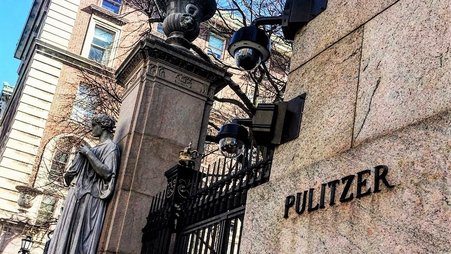Donald Trump’s $10 billion lawsuit against CBS over a “60 Minutes” interview of Vice President Kamala Harris has been called “ridiculous junk”, “a frivolous election stunt” and “difficult to take seriously.” That’s all true, but here’s something else it could be called: trendy.
Trump — whose “claim” against CBS is based on the Texas Deceptive Trade Practices Act — is just the latest in a long line of conservatives attempting to shut down free speech using consumer and business protection laws. With Trump’s lawsuit, what started as a campaign against social media companies has now morphed into a direct assault on the free press.
Conservative AGs ‘protect’ consumers from online free speech
Every state and the federal government has consumer protection laws, intended to prohibit things like misleading ads or bait-and-switch sales tactics. Legal theories providing remedies for wrongful interference with commercial relationships are also meant to target unfair business dealings.
Ironically — given that they often oppose consumer protection laws when used for their intended purpose — conservatives have now seized on them to attack editorial decisions with which they disagree and to chip away at the First Amendment.
The patron saint of the conservative movement to transform consumer and business protection law into an anti-speech cudgel is Texas Attorney General Ken Paxton, who’s brought numerous investigations or lawsuits against his political enemies under the Texas DTPA. Several of these actions specifically target speech that Paxton dislikes.
For instance, Paxton has frequently used the DTPA to target social media companies for their own speech and content moderation decisions, which the Supreme Court has now said are exercises of editorial judgment protected by the First Amendment.
Paxton sued Yelp (unsuccessfully) under the DTPA because he disagreed with its decision to label crisis pregnancy centers to accurately note that they “typically provide limited medical services and may not have licensed medical professionals onsite.” He also launched DTPA investigations into several tech companies after they blocked Trump’s social media accounts or the conservative app Parler.
But Paxton hasn’t limited his crusade to “protect” consumers from free speech to just social media. He also opened a DTPA investigation into Media Matters, a nonprofit journalism watchdog, after it published a research report showing that social platform and conservative darling X had placed ads for major brands next to antisemitic posts.
On the very same day, Elon Musk sued Media Matters over the same report, alleging a variety of claims based on protections for business dealings. Weeks later, Missouri Attorney General Andrew Bailey launched his own investigation into Media Matters, under that state’s consumer protection laws.
Consumer protection laws being used directly against news media
When Media Matters began to face the onslaught of investigations and lawsuits under consumer protection laws for its exercise of free speech, its president warned that mainstream news outlets would be next. So did we.
Now, here we are. Trump, having learned from the tactics used by Paxton, Musk, and Bailey, is using consumer protection law to sue CBS for allegedly “misleading” the public by editing its interview with Harris.
The “60 Minutes” interview with Harris has nothing to do with commercial speech, which is the whole point of consumer protection laws. Its decisions about how to edit an interview and what to broadcast are clearly protected by the First Amendment. That’s why the First Amendment experts are right when they say Trump’s lawsuit is frivolous and ridiculous.
But winning clearly isn’t the point. Even if Trump loses, he will still have generated headlines about “60 Minutes” “misleading” the public. Trump — a well-known libel bully —will also have learned a new way to punish his critics by forcing them to spend money to defend themselves against his frivolous consumer protection claims.
The greatest risk of Trump’s lawsuit isn’t to CBS. It’s to the future news outlets that will face an onslaught of frivolous investigations or lawsuits for supposedly violating consumer protection laws by Trump or other politicians who adopt this tactic going forward.
After all, CBS may be able to afford to defend itself against Trump, but most cash-strapped local news outlets couldn’t, especially if state attorneys general pile on with their own investigations or lawsuits. Trump and other conservatives know that, and they’re counting on the costs of these kinds of investigations and lawsuits to force news outlets to lay off staff or even stop publishing.
Plus, even if Trump and others lose these kinds of cases in the short term, they may find more success in the future. What begins as a fringe legal theory sometimes moves into the mainstream, especially if plaintiffs forum shop to find sympathetic judges.
We can’t let that happen. Courts should reject any attempt to use consumer protection laws as a First Amendment loophole. State lawmakers must watch this trend closely and be ready to change consumer protection laws to explicitly protect journalism and free speech if necessary.
News outlets’ editorial decisions aren’t above criticism. People calling on networks to release full transcripts of interviews online have a fair point — but not a legal claim. Politicians can take advantage of their own free speech rights, rather than weakening those of others, by taking their case to the public, not the courts.





